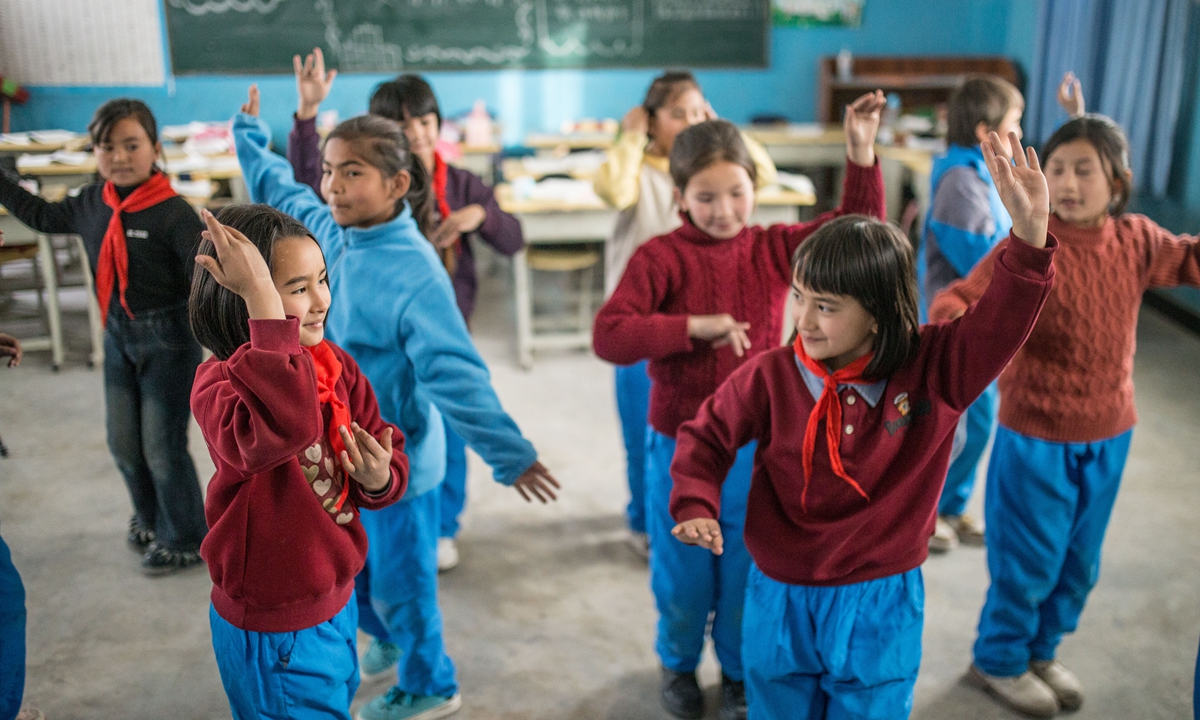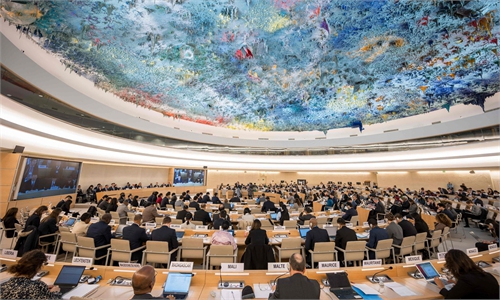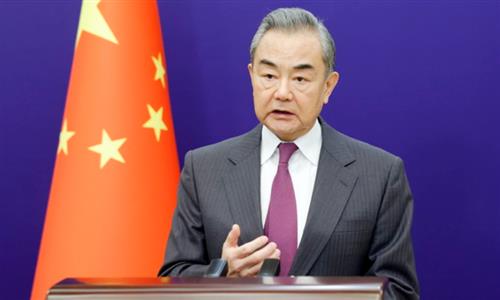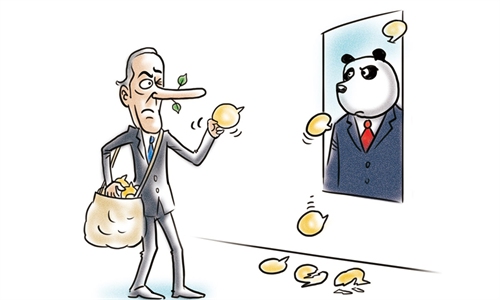Lies, rumors fabricated over Xinjiang, Xizang to contain China's development: Chinese FM

Students dance with traditional Uygur music during an after-class activity in Daliyabuyi village of Yutian, Northwest China's Xinjiang Uygur Autonomous Region on February 28, 2024. Photo: Shan Jie/GT
In recent years, some Western countries have attacked and smeared China under the pretext of human rights. They have concocted a number of rumors and lies on issues related to Xinjiang and Xizang. What they did was not at all out of care for human rights, but for the purpose of holding back China's development, Mao Ning, spokesperson for the Chinese Ministry of Foreign Affairs, said on Tuesday, responding to the latest smear from the UN High Commissioner for Human Rights.
Volker Turk, UN human rights chief, on Monday called on China to "amend laws that violate fundamental rights," naming China's Xinjiang and Xizang regions. He also called for the release of "human rights defenders" detained for picking quarrels and making trouble, Reuters reported.
In response to the smear, Mao pointed out that a happy life for the people is the most important human right. Putting the people front and center, China has worked to realize, protect and advance the fundamental interests of the greatest majority of the people. China has found a path toward better human rights that follows the trend of the times and fits its national realities and made historic achievements in the human rights cause.
Currently, China's Xinjiang and Xizang regions enjoy social stability, economic growth, solidarity among all ethnic groups and harmony among various religious beliefs, and the people there are living a happy life, Mao said.
China stands ready to carry out dialogue and communication with the UN human rights body and other parties on the basis of mutual respect to enhance understanding, build up consensus and jointly provide positive energy for global human rights governance, the spokesperson noted.
"In the meanwhile, we urge the UN human rights body to respect the judicial sovereignty of member states, carry out its work under the principle of impartiality, objectivity, non-selectivity and non-politicization, and play a constructive role in promoting the healthy development of the international human rights cause," she said.
Mao stressed that facts prove once and again that the international community has seen more and more clearly about the political agenda and double standards of the US and other Western countries behind their manipulation of human rights issues, and their rumors and lies have been rejected by more and more people.
So far, we have every reason to say that the accusations of the so-called human rights violations in Xinjiang and Xizang regions are completely Western conspiracies, Zhang Yonghe, a professor of law at Southwest University of Political Science and Law in Southwest China's Chongqing Municipality and the executive director and chief expert of the university's Human Rights Institute, told the Global Times on Tuesday.
"There are no laws or policies in Xinjiang and Xizang that violate human rights," Zhang said. "The accusations against China's legislation and judicial work are indeed interference in China's internal affairs."
Zhang pointed out that the various reactions of the West toward human rights issues fully reflect their double standards. "As for the so-called evidence provided by those who hope to seek political asylum in Western countries, it's easy to see how they lack credibility," he said.
Also on Monday, the Chinese Ambassador in Geneva expounded China's perspectives on advancing and safeguarding human rights, stressing that peace and development are crucial pillars for promoting and protecting human rights, the Xinhua News Agency reported Tuesday.
Chen Xu, permanent representative of China to the United Nations Office in Geneva and other international organizations in Switzerland, stressed it is important to acknowledge the diversity of world civilizations, honor the historical and cultural traditions of different countries, and respect each country's chosen development paths, particularly in the face of growing challenges and obstacles. He called on states to refrain from imposing one's own values and development models on others.
Advocating for seeking common ground while setting aside differences, and fostering greater mutual trust, Chen also called for collaborative efforts to counter interference in other countries' internal affairs under the pretext of human rights issues. China is committed to a human rights development path tailored to its national conditions, Chen said.
He also told the UN Human Rights Council about China's advocacy for the equal enjoyment of human rights by all ethnic groups, its whole-process people's democracy and the legal framework for human rights protection.
Mao also noted that in recent years, more than 100 countries have supported China's just position on issues related to Xinjiang, Xizang and Hong Kong and opposed external interference in China's internal affairs under the pretext of human rights at multilateral human rights meetings. This fully proves that the world is not blind to truth.
In January, China won international acclaim for its achievements in the cause of human rights during the regular Universal Periodic Review (UPR) conducted by the UN Human Rights Council, during which the vast majority of countries recognize China's unremitting efforts and historic achievements in promoting and safeguarding human rights. These countries are willing to strengthen exchanges and mutual learning with China in human rights, Xinhua reported.



